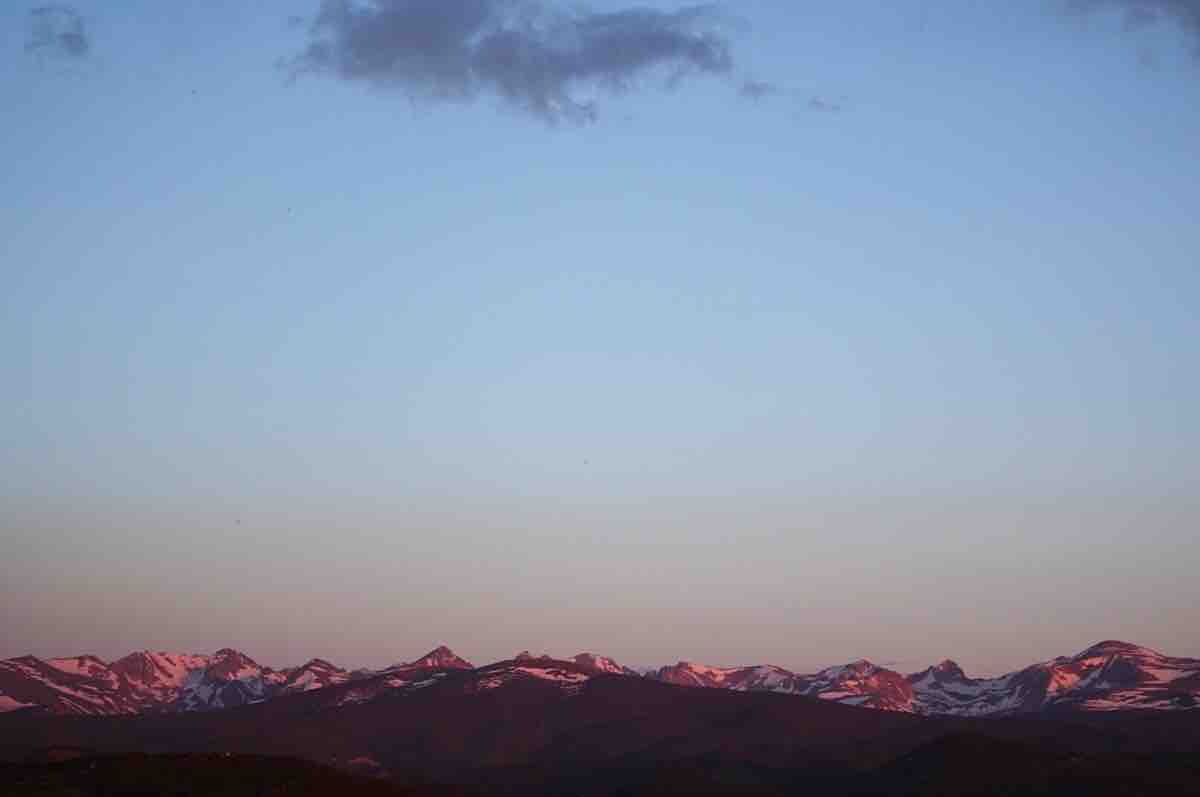I haven’t been sleeping much lately. This hasn’t been from lack of need or desire, rather that life circumstances have pushed physical activity to the day’s periphery.
At 4:30 a.m., I make a strong cup of coffee and sip it on my porch while Dog sniffs around the yard. For some strange reason, I enjoy the micro-aggression to my palette of the acidic beverage providing an instant awakening of the senses. The warm weather allows me to leave the house in just my shorts and running shoes. Everything is quiet as I trot down main street on the half-mile of dirt road to the trail.
After about 15 minutes of running, I turn a bend and encounter a large male bear. I recognize him as he’s been the talk of the town, popping up in neighbors’ photos in their yards, even laying on their porches.
I’ve bumped into him a few times, but have not yet had the opportunity to be this close. He stands about 20 to 30 feet ahead of me. Thankfully, he isn’t startled, but stares at me while audibly grunting and groaning. I reciprocate while catching my breath. In that moment, I think of how we are not so dissimilar. We both had berries for breakfast and are out for our morning stroll. Who knows, he might even have a little coffee in his system from the neighbor’s compost. The whole exchange lasts a few seconds. He turns and bolts straight down the hill, in a cacophony of broken twigs and branches echoing down the canyon.
I used to be kind of nervous of this type of encounter. A long, agonizing stalking experience from a mountain lion on the Wonderland Trail on Mount Rainier made me subsequently pretty jumpy around wildlife. Over time, that feeling has worn off, though, and I’ve come to a place of acceptance of our shared space rather than fear of what could happen.
One aspect that always stayed with me after that encounter was that my fear was born from my preconceived notion of what the animal could do, rather than any demonstrative aggression. I’m not saying that it’s not a dangerous animal, but simply that I create fear in my head out of perception of what I know rather than from a direct threat.
This reminds me of a conversation I had recently with Chris Kalous for a podcast interview. We were discussing Alex Honnold’s feat of free soloing (climbing without ropes) Yosemite’s El Capitan. Chris brought up that the million-dollar question that everyone wants to know about Alex is, how does he not feel fear?
In a similar vein and in relation to running, he was curious as to what keeps us going, mile after mile, after mile. What is it that motivates you to keep putting one foot in front of the other at mile 70 in a 100-mile race?
At first, I did not see the correlation between the two questions. In Alex’s situation, the consequences of falling are final, while in running you can simply tap out and sit on the side of the trail until the desire to move again occurs. But, what Chris was getting at in his comparison pertained more to the state of mind of being able to make abstraction of a certain type of feeling, whether it be fear of falling or pain induced by miles on our feet.
I think the reason that this type of question comes up time and time again is because everyone wants to know how to tap into that state of mind and the answer is often unsatisfactory: a trite “it is what it is” or something along the lines of “you just kinda’ keep going.”
To me, practice dispels fear of the unknown. In the case of the mountain lion, my fear stemmed from perception of what I knew rather than any real experience with this kind of encounter.
With familiarity comes a certain level of ease that helps manage fear. That isn’t to say that I lack awareness of what could happen, but rather that I find comfort in knowing that I do not need to invite fear in because I am assessing the situation for what it is rather than what it could be. Similarly, when you have taken those few steps past mile 70 and realize that they are no different than the ones you took before that, the fear of the unknown dissipates, allowing you to keep going as if it’s the most natural thing in the world. This demystification process allows us to operate with clarity, being in acceptance of what is, rather than in fear of what could be.
Call for Comments (from Meghan)
- What situations, actions, or people do you fear perhaps because you don’t know about them rather than because you do?
- Have you experienced a similar devolution of fear as what Joe describes, where learning about something dissipated your discomfort with it?


